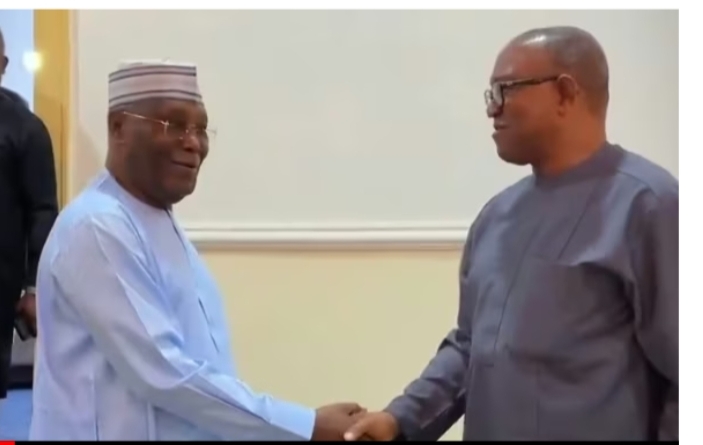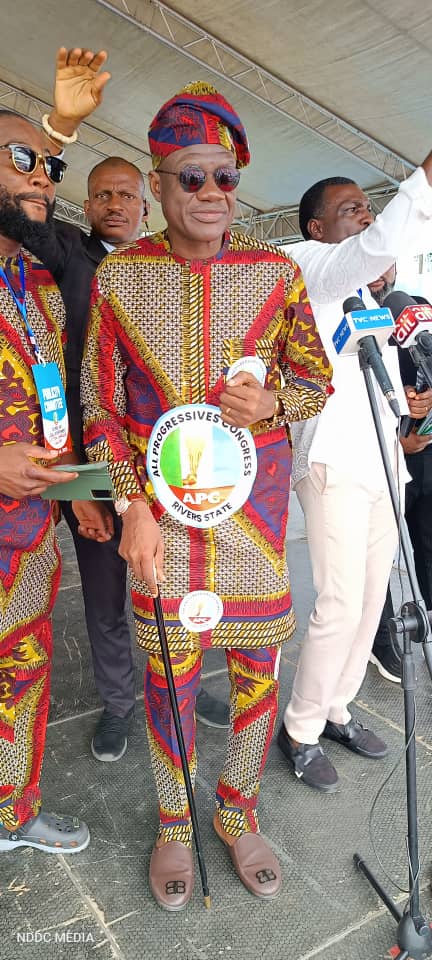SOUTH-SOUTH GOVERNOR DECLARE BOLD AGENDA UNDER DIRI: OIL DERIVATION, TAX, REFORMS AND REGIONAL UNITY
The South-South Governors Forum has taken a pivotal step in reinvigorating regional development by electing Senator Douye Diri, Governor of Bayelsa State, as its chairman. This decision, made during a meeting at the Government House in Yenagoa, marks a significant moment in the region’s history.
The forum, comprising governors of Bayelsa, Rivers, Delta, Cross River, Akwa Ibom, and Edo States, aims to reposition the South-South as a formidable bloc in Nigeria’s socio-economic and political landscape.
Senator Diri’s emergence comes at a time when the region’s future hangs in the balance, grappling with challenges ranging from environmental degradation to economic dependency on oil. The governors’ unanimous decision reflects a renewed commitment to unity, action, and a long-overdue push for sustainable development.
The Significance of Diri’s Election and the Forum’s Objectives
Diri’s election signals a shift from rhetoric to action in addressing the South-South’s challenges. Acknowledging his new role as a call to higher service, Diri pledged to lead the forum with diligence and collaborate with his colleagues to move the region forward.
The forum outlined ambitious objectives, including fostering regional synergy and prioritising investments in critical sectors such as:
Security: Establishing a robust security network to combat rising threats.
Agriculture and Environment: Diversifying the economy and addressing pollution.
Education and Youth Empowerment: Leveraging ICT, sports, and entrepreneurship.
Infrastructure: Developing regional flight connections and expediting federal road projects.
This focus on actionable outcomes contrasts sharply with the ineffectiveness of past initiatives under the BRACED Commission, which the governors criticised for yielding minimal results.
Analysis: The Regional Context and Strategic Importance
1. Strengthening Regional Unity
One of Diri’s first declarations as chairman was the imperative to “speak with one voice.” This unity is critical in a political climate where regional fragmentation has often weakened the South-South’s bargaining power.
By aligning their priorities, the governors aim to amplify their demands on the federal stage, particularly regarding resource control, federal allocations, and infrastructure development.
2. The Oil Derivation Debate
A centerpiece of the forum’s communique was the call for increased oil derivation. Under Nigeria’s Constitution, states in oil-producing regions are entitled to a minimum of 13% of revenue derived from their resources.
However, the governors argued that this percentage is grossly inadequate given the scale of environmental and infrastructural challenges caused by oil extraction.
The forum’s proposal to expand derivation principles to other resources, including VAT, represents a bold challenge to the federal revenue-sharing framework.
This demand aligns with the broader agitation for resource control, a longstanding issue that has fuelled political tension in the Niger Delta region.
3. Tax Reform Support with a Caveat
While the forum expressed support for President Bola Tinubu’s ongoing tax reforms, it coupled this with a clear demand: the reforms must address the inequities in resource allocation.
The emphasis on oil-producing states underscores a critical need for reforms that reflect the region’s contributions to the national economy.
4. Environmental Restoration and Federal Neglect
The governors reiterated their call for the federal government to extend the Ogoni cleanup initiative to other polluted areas in the Niger Delta.
Environmental remediation remains a major point of contention, with communities in the region suffering from decades of oil spills, gas flaring, and ecological degradation.
Policy and Structural Critique: What Must Change?
The BRACED Commission: A Symbol of Regional Failure?
The BRACED Commission, initially established to foster regional integration and development, has been largely ineffective. Critics argue that the commission’s failure stems from a lack of political will, inadequate funding, and competing state interests.
As the governors chart a new course under Diri’s leadership, they must confront the systemic flaws that undermined BRACED.
The Federal-Regional Power Imbalance
The South-South’s challenges are emblematic of broader structural inequities in Nigeria’s federal system. The concentration of power and resources at the centre has left resource-rich regions like the South-South underdeveloped and marginalised.
Any meaningful progress will require a renegotiation of the federal structure, in line with the Nigerian Indigenous Nationalities Alliance for Self-determination (NINAS) Five-Point Propositions, to allow the federating units greater autonomy over their resources.
Infrastructure Deficits and Federal Promises
The forum’s call for expedited work on the East-West Road and the coastal road project highlights the federal government’s history of unfulfilled promises.
These projects, critical to regional connectivity and economic growth, have been plagued by delays and funding shortages. The governors’ demand for tangible progress reflects growing frustration with federal neglect.
The Political Implications of Regional Collaboration
A Test for the Tinubu Administration
The South-South governors’ demands present a litmus test for President Tinubu’s commitment to inclusive governance.
While the administration has shown some willingness to address regional concerns, such as awarding the coastal road project, its response to the forum’s broader demands will shape its relationship with the region.
Beyond Partisan Politics
The forum’s emphasis on setting aside political affiliations is a pragmatic acknowledgment of the need for unity in the face of shared challenges.
However, sustaining this nonpartisan approach will require the governors to prioritise regional interests over personal and party loyalties.
Looking Ahead: Opportunities and Challenges
Leveraging Regional Strengths
The South-South’s abundant resources, from oil and gas to agriculture and tourism, provide a solid foundation for sustainable development.
By pooling resources and leveraging their comparative advantages, the states can create a diversified and resilient regional economy.
Building Institutional Capacity
To avoid repeating the mistakes of the BRACED Commission, the forum must establish a robust institutional framework for implementing its initiatives.
This includes clear timelines, accountability mechanisms, and regular progress assessments.
Ensuring Federal Accountability
The governors must adopt a proactive approach to holding the federal government accountable for its commitments to the region.
This includes sustained advocacy, strategic partnerships, and, if necessary, legal action to secure their rights under the Constitution.
A Turning Point for the South-South?
The election of Douye Diri as chairman of the South-South Governors Forum marks a potential turning point for the region. With a renewed focus on unity, action, and sustainable development, the forum has an opportunity to address the longstanding challenges that have hindered the South-South’s progress.
However, translating these ambitions into reality will require more than rhetoric. The governors must confront systemic barriers, build institutional capacity, and maintain a united front in their engagement with the federal government.
If they succeed, the South-South could emerge as a model of regional collaboration and a driver of Nigeria’s economic transformation.
A Call to Action: Will the South-South Finally Rise?
The South-South Governors Forum’s recent meeting in Yenagoa was not merely a ceremonial gathering; it was a clarion call to action. Douye Diri’s acceptance speech underscored a collective resolve: “Our region will not fail.” Yet, these words will only resonate if followed by measurable outcomes.
The stakes are high. The South-South’s marginalisation in federal allocations, coupled with environmental devastation and crumbling infrastructure, demands urgent attention.
The governors’ ability to deliver on their promises will determine whether this forum becomes a turning point or another failed experiment in regional collaboration.
Strategic Partnerships: Unlocking Regional Potential
1. Public-Private Partnerships (PPPs)
To fund critical projects like the proposed South-South regional flight network and industrial hubs, the forum must attract private sector investment.
PPPs can bridge funding gaps while ensuring efficient project execution.
2. International Collaboration
The South-South must leverage international partnerships for environmental remediation, renewable energy initiatives, and capacity building.
Organisations like the United Nations Environment Programme (UNEP) and the African Development Bank (AfDB) can provide technical expertise and funding.
3. Leveraging Community Engagement
The governors must prioritise grassroots participation in their initiatives. From youth empowerment programmes to environmental cleanup efforts, community involvement is crucial for ensuring sustainability and fostering local ownership.
The Federal Government’s Role: Partner or Adversary?
The South-South governors’ demands, particularly for increased oil derivation and expedited infrastructure development, present a direct challenge to the federal government’s resource allocation policies.
While President Tinubu’s administration has shown some willingness to address regional concerns, its response to these demands will reveal its true commitment to equitable governance.
Key Federal Commitments Awaiting Action
Oil Derivation Increase: Will Tinubu heed the call for a more equitable sharing formula?
East-West Road Completion: Can the federal government meet its long-standing promise?
Environmental Remediation: Beyond Ogoni land, will the Niger Delta receive comprehensive cleanup?
A New Dawn or More of the Same?
The South-South Governors Forum has set an ambitious agenda under Diri’s leadership, but its success hinges on unity, strategic planning, and sustained advocacy.
As the region navigates this critical juncture, the stakes could not be higher.
Will the South-South finally rise to its full potential? Or will this forum become another missed opportunity in a long history of unfulfilled promises? Only time will tell.






Hi, this is a comment.
To get started with moderating, editing, and deleting comments, please visit the Comments screen in the dashboard.
Commenter avatars come from Gravatar.